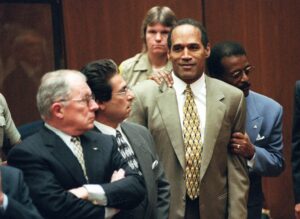A reparations proposal that, among many complex ideas, suggested paying $5 million to each eligible Black San Franciscan whipped conservative politicians and pundits into a frenzy when I wrote about it this month.
Fox News crammed the words “outrageous,” “unconstitutional” and “unlawful” into a single headline. The National Review warned the plan would bankrupt the city. The San Francisco Republican Party called the proposal “ludicrous.” The collective freak-out was both predictable and predictably cynical, and led to death threats and racist letters for members of the African American Reparations Advisory Committee, which drafted the proposal.
This is exactly what the right wants, and it obscures a more mundane reality:
San Francisco is nowhere close to approving a reparations plan. The Board of Supervisors, which created the committee, will have its first public discussion about the committee’s proposal on Feb. 7, and the final plan isn’t due until June.
All 11 supervisors voted unanimously to establish the advisory committee. Only four communicated with me about the committee’s proposal, which the supervisors received in December. Mayor London Breed’s office declined to comment other than to say Breed is reviewing the proposal.
Honestly, I understand if some politicians are hesitant to brave the troll mobs to share their early thoughts. Nationally, reparations poll poorly — 30% of adults support it, according to 2021 Pew Research Center data. Even among reparations supporters, only 57% favor the idea of cash payments.
The politicians I spoke with reaffirmed their support for reparations but were evenly divided on whether or not cash payments were feasible; two said they were unrealistic, while the other two said that some form of cash payments could happen. No one guaranteed that the city would give Black residents $5 million checks. Meanwhile, the conservative media tried to make cash payments seem like nothing less than a certainty.
Supervisor Joel Engardio emailed a statement in which he said he supports “finding bold, meaningful, and creative ways to address the injustice of slavery and systemic discrimination suffered by generations of Black Americans.” But the $5 million direct payments “may not be feasible under current budget constraints.”
Supervisor Hillary Ronen gave a similar perspective, both on the reparations plan and the lump sum payments, saying: “I wish we had this kind of money in San Francisco’s general fund but if we want to maintain the services that exist today, we do not.” Ronen added that the city still has to have “robust public discussions and hire a director to oversee how to meaningfully meet all the Committee’s recommendations.”
Supervisor Dean Preston said the city could take an introspective approach to finding ways to fund the draft plan’s recommendations: “We can take a hard look at some of the things that are contributing to the disparities in the city but that we consider untouchable in city government,” he told me during a phone call.“Certainly that could mean decreasing the police budget and using money to fund some of the committee’s recommendations.”
Supervisor Shamann Walton wrote the legislation that created the committee two years ago. During our conversation, he mentioned that some city residents have floated the idea of using San Francisco’s Cannabis Business Tax as a funding stream for reparations, including cash payments. The tax, which was suspended through the end of 2022, could raise around $10 million annually for the city’s general fund, the San Francisco Standard reported in November.
“People wonder how with so many Black people historically over-incarcerated, over-criminalized, behind marijuana charges, what could that tax do to help with reparations,” Walton said.
Walton emphasized that the city still has a ways to go to figure out what a reparations plan should look like. He said he also expects to face harassment as San Francisco’s reparations journey unfolds.
“Our Board of Supervisors unanimously approved this committee, and this committee is doing its job,” Walton said. “We have a lot of people that are supporting this process in the city, despite how the outside voices are trying to make it seem.”
There will probably be more manufactured anger from right-wing hacks in response to this column. Let’s recognize it for what it is: irrational envy of a city working to right historical wrongs.
San Francisco Chronicle columnist Justin Phillips appears Sundays. Email: jphillips@sfchronicle.com Twitter: @JustMrPhillips







